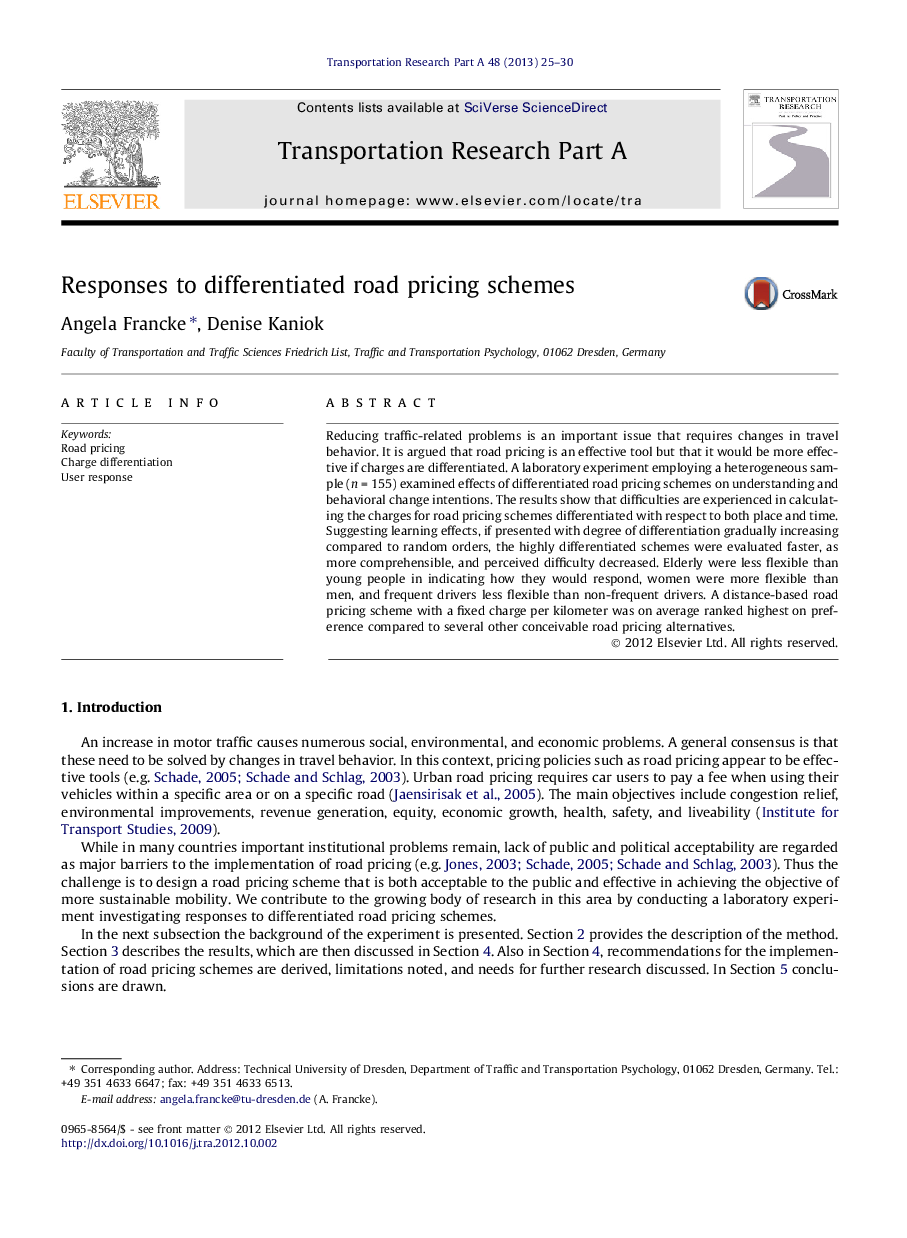| Article ID | Journal | Published Year | Pages | File Type |
|---|---|---|---|---|
| 311540 | Transportation Research Part A: Policy and Practice | 2013 | 6 Pages |
Reducing traffic-related problems is an important issue that requires changes in travel behavior. It is argued that road pricing is an effective tool but that it would be more effective if charges are differentiated. A laboratory experiment employing a heterogeneous sample (n = 155) examined effects of differentiated road pricing schemes on understanding and behavioral change intentions. The results show that difficulties are experienced in calculating the charges for road pricing schemes differentiated with respect to both place and time. Suggesting learning effects, if presented with degree of differentiation gradually increasing compared to random orders, the highly differentiated schemes were evaluated faster, as more comprehensible, and perceived difficulty decreased. Elderly were less flexible than young people in indicating how they would respond, women were more flexible than men, and frequent drivers less flexible than non-frequent drivers. A distance-based road pricing scheme with a fixed charge per kilometer was on average ranked highest on preference compared to several other conceivable road pricing alternatives.
► Differentiation of road pricing schemes is analyzed. ► Responses are measured in a laboratory experiment. ► Higher differentiation leads to worse performance. ► Old people (>60 years) perform worse than young people (<30 years).
